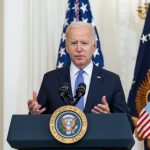House Energy and Commerce Committee has released a draft proposal to repeal the tech industry’s liability shield, known as Section 230, by 2025. The proposal, known as the Section 230 Sunset Act, is a bipartisan effort spearheaded by Chairwoman Cathy McMorris Rodgers (R-WA) and ranking member Frank Pallone Jr. (D-NJ). It aims to address concerns over child safety, criminal activity, and misinformation online, particularly in the lead-up to the upcoming elections.
Section 230, enacted in 1996, was meant to encourage online platforms to moderate third-party content without facing legal repercussions. However, there is an increasing call to hold Big Tech companies accountable for the content shared on their platforms. Critics argue that the current law has facilitated mental health concerns, illegal activities, and misinformation, particularly during important events like elections.
Lawmakers Push for the Censorship of "Harmful Content," "Disinformation" in Latest Section 230 Reform Push
Section 230 of the Communications Act (CDA), an online liability shield that prevents online apps, websites, and services from being held civilly liable for content posted… pic.twitter.com/RJ26bvCdhy
— The Voluntariast (@TheVoluntariast) May 23, 2024
Opponents of repealing Section 230 emphasize the economic benefits and expanded speech opportunities the law has provided. They warn that removing this liability shield would hinder free speech and innovation, especially for smaller platforms and services.
The push for changes to Section 230 has bipartisan support but is mired in disagreements over the details of the legislation. Democrats and Republicans have contrasting concerns about the law. While the political Left believes that online platforms are not doing enough to remove harmful content, the political Right argues that platforms are censoring conservative voices. President Joe Biden has called for the repeal and revision of Section 230, while former President Donald Trump sought to limit its protections.
In response to concerns over content moderation, Senator Josh Hawley (R-MO) introduced a bill to require platforms to prove they are not moderating content with a political bias in order to retain their Section 230 protections.
The proposed repeal of Section 230 faces hurdles as the legislative session nears its end and with the impending elections. The debate over this legislation is fueled by competing interests and differing views on the role of online platforms in moderating content and protecting free speech.




